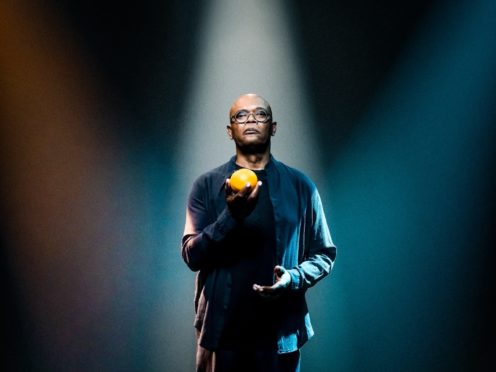Samuel L Jackson has called for support to end Alzheimer’s disease, the “cruel” condition that ravaged his family.
The Hollywood star, who is backing a campaign to battle the misconception that dementia is an inevitability of old age, has seen six relatives live with the degenerative disease.
His mother, grandfather, aunts and uncles were diagnosed with the form of dementia, making him a stranger to them.
Jackson is helping Alzheimer’s Research UK’s #ShareTheOrange campaign, which aims to get people to think differently about dementia, challenging widespread beliefs that it is a natural part of ageing.
He said: “I’ve been surrounded by Alzheimer’s most of my life. My grandfather was my best friend growing up, so it was heart-breaking for me to see him not know who I was.
“The same happened with my mother soon after she was diagnosed. Her mother had it, her brother had it, her sister had it, and so did my aunt on my father’s side.
“It is so cruel having someone who has nurtured you and taken care of you reach a point where they can’t even recall your name.”
Alzheimer’s Research UK uses the symbol of an orange in its campaign to symbolise the weight of the matter lost in the brain as the condition develops.
In a new short film, produced by Aardman Animations, Jackson says: “The damage to a brain with Alzheimer’s can leave it weighing 140g less than a healthy one. That’s about the weight of an orange… this shows us it is a physical disease.”
Jackson and the charity are hoping to show the public that the Alzheimer’s in not an inevitable part of ageing, but a disease that can be stopped and potentially cured.

Jackson said: “With research we know diseases can be slowed, they can be stopped.”
The Pulp Fiction and Unbreakable star follows Bryan Cranston and Christopher Eccleston, who have both backed the campaign launched by the charity in 2016.
Hilary Evans, chief executive of Alzheimer’s Research UK, said: “Alzheimer’s Research UK relies almost entirely on public donations to support its work, and the enduring misconception that dementia is an inevitability hinders our ability to recruit volunteers for research, secure funding and press for further government support for research.
“We’re calling on the public to #ShareTheOrange, turn fatalism into hope and make dementia the next big medical success story.”
